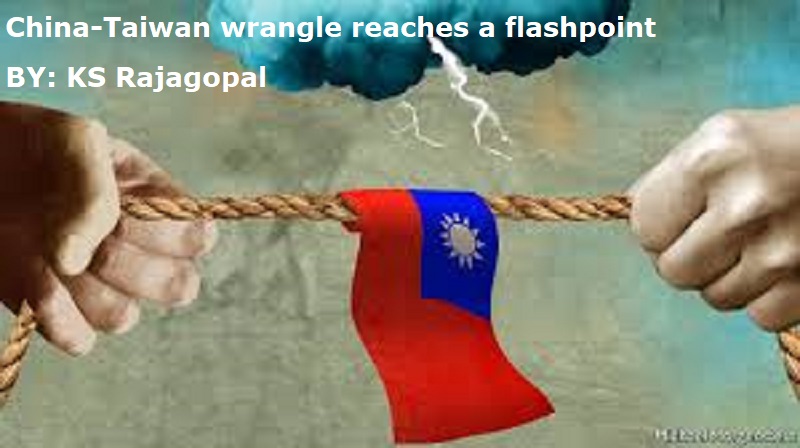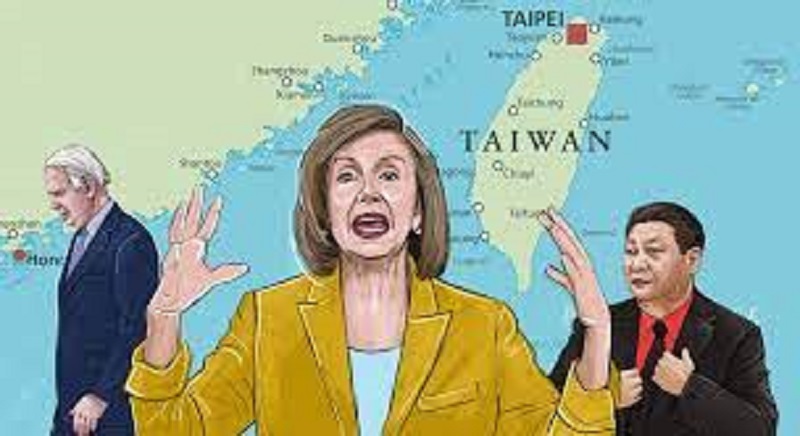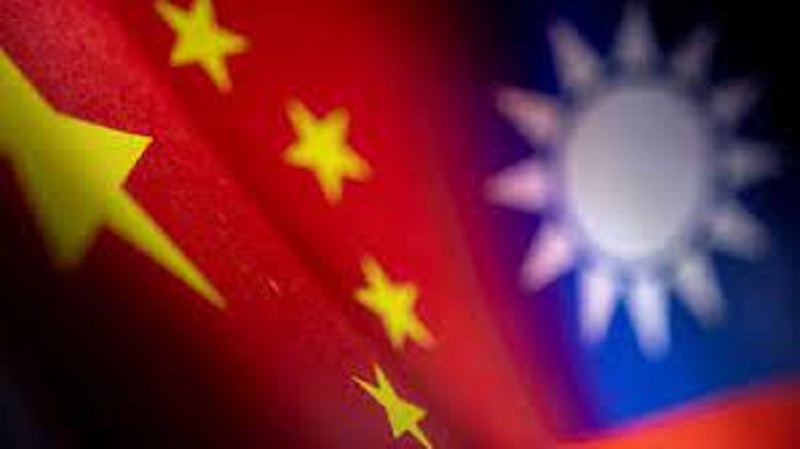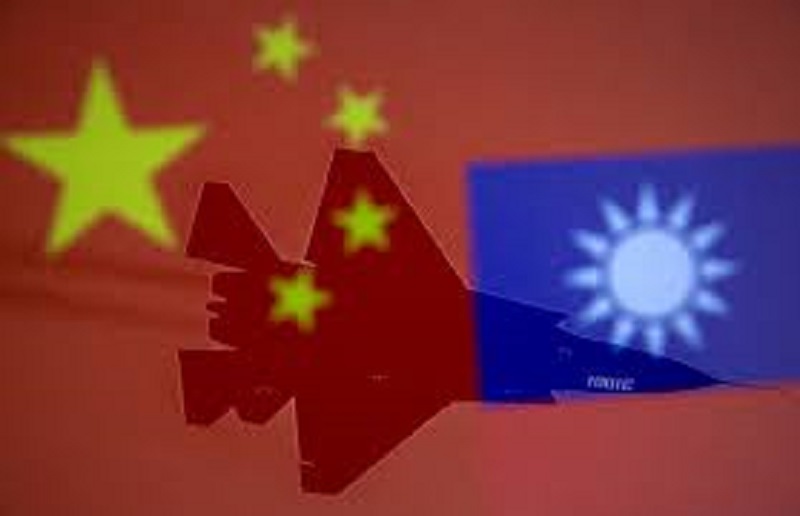
US House Speaker Nancy Pelosi’s recent visit to Taiwan followed by the visit of a five-member delegation of US lawmakers has further strained relations between China and Taiwan. Provoked by the visit, China conducted military exercises for days around the island, drawing the world attention to Taiwan Straits.
The face-off between China and Taiwan has been ongoing for around seven decades. One is a giant compared to the other and a dominant economic as well as military power in the world. Taiwan’s only strength is its democracy which is alien to this superpower in confrontation. With the threat of occupation by the communist nation looming, the islanders have been living in a constant fear of losing their self-rule. Whereas, the Chinese think the annexation of the island is impending and legitimate.
Taiwan has never been an independent country and if someone describes it as one, it is because of the ulterior motive, says China. It asserts that the island is never separated from the mainland and remains a part of People’s Republic of China. However, the Taiwanese consider themselves to be independent and free from China.

The two sides make claims and objections regarding sovereignty and international relations of the island. The Chinese government objects to Taiwan having any official contact with foreign governments because it considers the island its own territory. China has also refused all contact with the Taiwanese government since the 2016 election of President Tsai Ing-wen who was overwhelmingly re-elected in 2020.
China has accused the US of encouraging the island’s independence through the sale of weapons and constant engagement of US politicians and Taiwan’s government. In response, the US administration has made it clear that it does not support independence of Taiwan however wants to protect democracy in the island. Taiwan on the other hand states that authoritarian China can’t dictate how democratic Taiwan makes friends, wins support, stays resilient and shines like a beacon of freedom.

The Taiwanese basically lean towards Japan though they belong to different tribes who had come to the island from China long ago. History of the island took a quick turn in 1945 when the Japanese occupation of Taiwan ended after the surrender of Japan in World War Two. The Japanese occupation began in 1895 following the defeat of China in a conflict with Japan over Korea. Japan’s imperial ambition was to annex both Korea and Taiwan. Japan’s plan temporarily halted with the Soviet Russia coming to the rescue of Korea. But China ceded Taiwan to Japan through the 1895 Treaty of Shimonoseki and Taiwan became the first colony of Japan. In 1910, Japan annexed Korea fully with the support of the US.
The Republic of China’s founding president Chiang Kai-shek’s rule in Taiwan for around 25 years from 1949 was rather repressive and so Chiang has been viewed critically by the Taiwanese citizens. Chiang remained president in Taiwan until his death in 1975. Chiang was succeeded by his son Chiang Ching-kuo whose rule over Taiwan was softer than that of his father. In an effort to improve relations with the native Taiwanese, he allowed more Taiwanese to take up prominent political positions. He also allowed dissenting voices during his tenure, which was not tolerated during his father’s reign. Political process evolved and became more liberal during the times of his successors.

Today, the Taiwanese favour neither China nor Japan. They want own identity in political, social, cultural and economic spheres. Still, if a Taiwan citizen is asked about his choice, he would say Japan which has deeper cultural, humanitarian and defence partnerships with the island. Japan is also the second largest trading partner of Taiwan. Most Taiwanese rely on Japan’s support and 96 percent of its citizens wish a political identity and trajectory independent from China’s. Frustrated by China’s military misadventures in the recent past, Japan warned that it could opt to use force if China initiated military operations against Taiwan.

As a colony of Japan, Taiwan had lots of benefits but issues like comfort women have left behind indelible scars in the minds of the Taiwanese. Japan had initially suppressed the resistance by native Han Chinese to its rule in the island. Later, Japanese rulers tried to assimilate them into the Japanese system. Considering the world view of a successful, ideal imperial force, the Japanese administration in Taiwan worked for the betterment of local residents’ lives with more facilities and comforts. This drive changed the locals’ perspective of the Japanese rule to a large extent.

The Taiwanese even now recognise Japan’s role in the development of Taiwan’s trained workforce, in the modernisation of its irrigation systems, in the building of the Taiwanese railway system, and in the design and creation of many of Taiwan’s major government buildings. At the same time, the Taiwanese harbour ill-feeling towards Chiang and a debate has surged about whether or not to demolish the spacious park grounds, facilities, and museum in Taipei that currently celebrate Chiang Kai-shek’s achievements. In 2017, three public statues of Chiang were vandalised and decapitated.
In contrast, in the city of Tainan, there is an annual ceremony to celebrate the life of Japanese civil servant Yoichi Hatta. The Taiwanese participants in the ceremony offer flowers and bow to Hatta’s statue in the park, remembering his role in turning the infertile land of southern Taiwan into an abundant rice barn.

Despite all this, Japan is strongly criticised for failing to accept responsibility for the comfort women system and its inhuman treatment of the system’s victims. The Taipei Women’s Rescue Foundation (TWRF) estimates at least 2,000 Taiwanese women had been conscripted into the comfort women system during the Japanese reign of the island. Former Taiwanese President Ma Ying-jeou called upon Japan to address the case of Taiwan’s comfort women through an official apology and compensation.

Post Your Comments